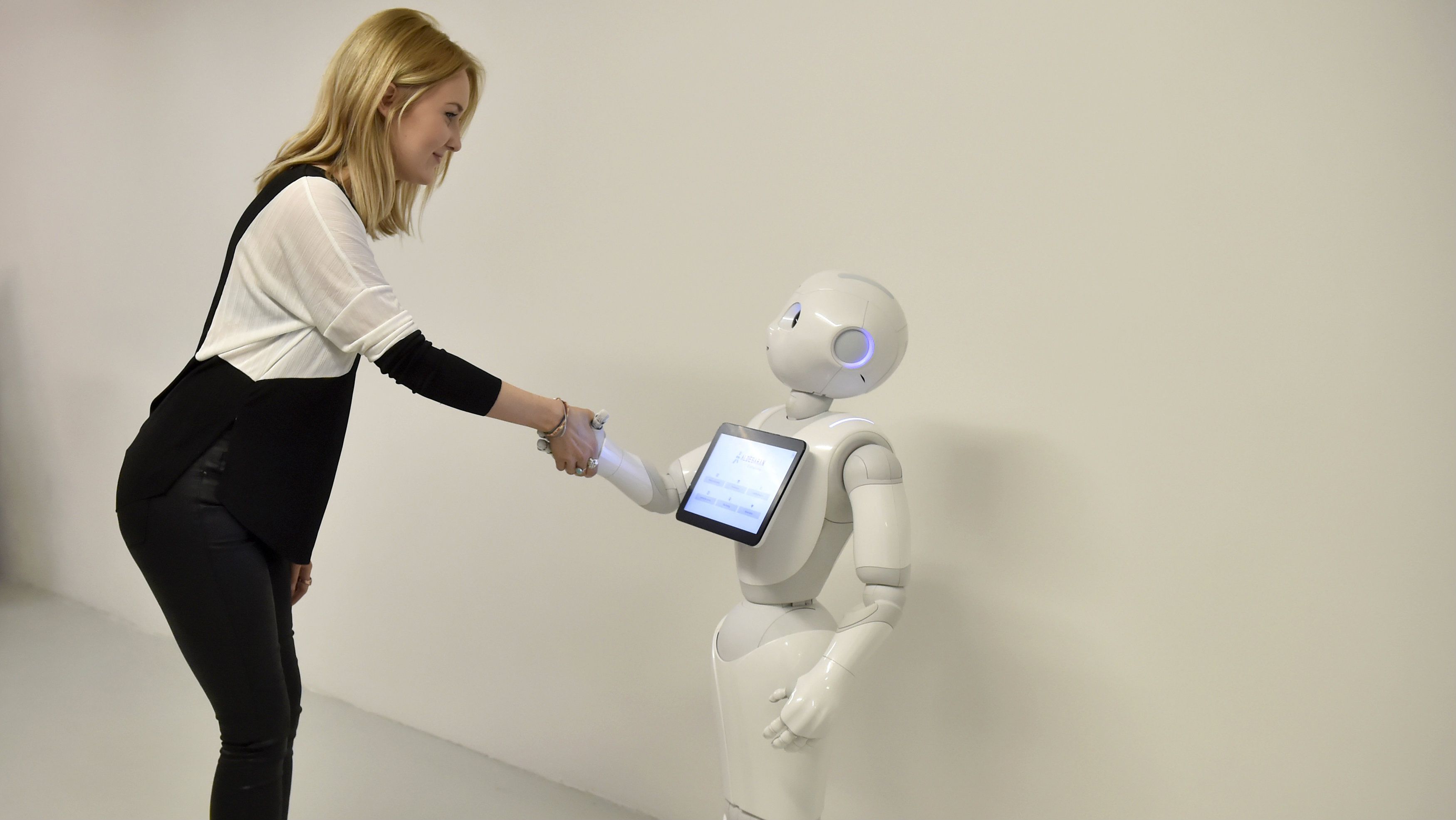
By Olivia Goldhill – December 24, 2016 -QUARTZ

In the face of AI exerts repeatedly predicting the rise of sex robots, it’s increasingly difficult to insist that such machines strictly belong to a far-off, dystopian future. But some robotics experts predict we’ll soon be doing far more than having sexual intercourse with machines. Instead, we’ll be making love to them—with all the accompanying romantic feelings.
At this week’s “Love and Sex with Robots” conference at Goldsmith University in London, David Levy, author of a book on human-robot love, predicted that human-robot marriages would be legal by 2050. Adrian Cheok, computing professor at City University London and director of the Mixed Reality Lab in Singapore, says the prediction is not so farfetched.
“That might seem outrageous because it’s only 35 years away. But 35 years ago people thought homosexual marriage was outrageous,” says Cheok, who also spoke at the conference. “Until the 1970s, some states didn’t allow white and black people to marry each other. Society does progress and change very rapidly.”
And though human-robot marriage might not be legal until 2050, Cheok believes humans will be living with robot partners long before then.
Though Cheok acknowledges that sex robots could fulfill sexist male sexual fantasies, he believes robot-human marriages will have an overwhelmingly positive effect on society. “People assume that everyone can get married, have sex, fall in love. But actually many don’t,” he says. And even those who do might be in search of a different option. “A lot of human marriages are very unhappy,” Cheok says. “Compared to a bad marriage, a robot will be better than a human.”
Though various sex robots are on the market, there are none that come close to resembling a human sexual partner—and there’s certainly nothing like the type of humanoid robot capable of replicating a loving relationship. However, Cheok believes the greatest technological difficulty in creating love robots is not a mechanical challenge, but a matter of developing the software necessary to build a robot that understands human conversation skillfully enough for the job.
Once that problem has been addressed, Cheok sees no problem with romances between man and machine. “If a robot looks like it loves you, and you feel it loves you, then you’re essentially going to feel like it’s almost human love,” he says. Cheok points out that in Japan and South Korea, there are already cases of humans falling in love with computer characters. Cheok also compares robot love to human emotions for other species, such as pet cats. “We already have very high empathy for non-human creatures. That’s why I think once we have robots that act human, act emotional, or look human, it’s going to be a small jump for us to feel empathy towards robots,” he says.
Others are less convinced. Oliver Bendel, professor at University of Applied Sciences and Arts in Switzerland, with a focus on machine ethics, says he does not believe sex or love robots will have moral standing. “Marriage is a form of contract between human beings to regulate mutual rights and obligations including the care and the welfare of children. Perhaps one day robots can have real duties and rights, though I don’t really believe it,” he says. However, he acknowledges that human-robot marriage could become legal by 2050 simply in response to public pressure.
Then again, Bendel says, legislation could move in the other direction: As sex and love robots become more realistic, governments could choose to ban sexual relationships between humans and machines. Either way, though the technology is not ready yet, experts believe it’s best to start figuring out the moral conundrums now, so that we’ll be prepared once romantic sex robots do arrive.




